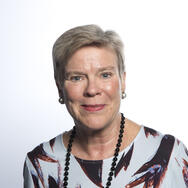Reflections on Mikhail Gorbachev's Life from FSI Scholars
Reflections on Mikhail Gorbachev's Life from FSI Scholars
Rose Gottemoeller, Steven Pifer, Francis Fukuyama, and Michael McFaul discuss the complex life and legacy of the last leader of the Soviet Union.

Mikhail Gorbachev, the former president of the Soviet Union, passed away on Tuesday, August 30, 2022. The last leader of the Soviet Union, Gorbachev ushered in what many in the West and Russia hoped would be a new era of democracy and development following the dismantling of the Iron Curtain and opening of Russia to Western markets and development.
Gorbachev's death comes in the midst of Vladimir Putin’s war against democratic Ukraine and a strong return to imperialist ideologies within the Kremlin. To help contextualize the impact of Gorbachev’s legacy, scholars from across the Freeman Spogli Institute for International Studies offer their reflections of his life and leadership.
A New Kind of Soviet Leader
Writing in the Bulletin of the Atomic Scientists, former Deputy Secretary General of NATO Rose Gottemoeller shared some of her personal memories of working with Gorbachev and his government.
"As Gorbachev’s presidency unfolded, it became clear that he was not going to be like the dour and geriatric Soviet Politburo members Leonid Brezhnev, Yury Andropov, and Konstantin Chernenko, who had followed each other in quick succession to the Kremlin leadership in the early 1980s. Only 54 when he took office, Gorbachev was easily the most dynamic figure seen in Moscow for nearly 30 years, with the confidence to speak openly on the public stage with foreign leaders such as Ronald Reagan and Margaret Thatcher."
She continues, "My only personal encounter with Gorbachev came many years later, when I worked in Moscow as director of the Carnegie Moscow Center. A Russian friend who was an associate of Gorbachev asked me if I would like to attend a lunch to celebrate his birthday. 'Of course!' I said. It was an honor for me.
I was pretty much a fly on the wall during the proceedings, since I could keep up with the fast conversation but did not want to display my less-than-perfect Russian to the former president. Nevertheless, he received me kindly. One exchange has always stuck with me. One of his former staffers from his time in the Kremlin asked him, 'Mikhail Sergeevich, when have the security services—the KGB, FSB, GRU—been more of a threat? Now, or during the Soviet era?'
Gorbachev thought about it for a moment and then said, 'During the Soviet era, at least the Communist Party Central Committee kept them under control. Now, they have no one to answer to but themselves. They are more of a threat now.' He was right."
Read Gottemoeller's full essay in the Bulletin of Atomic Scientists.

Changing and Humanizing the USSR
Steven Pifer, a former U.S. Ambassador to Ukraine, shared on Twitter some of the milestone accomplishments in nuclear arms control that came about during Gorbachev's administration. Having worked extensively in the U.S. Foreign Service and State Department for over 25 years in Ukraine, Warsaw, Moscow, and London, Pifer saw firsthand the impacts of Gorbachev's "glasnost’” policy — or the "opening up" of Russian society, government, and media — on the people of Russia and Eastern Europe.
"He gave Central Europeans freedom to make their own choices," Pifer wrote on Twitter. And while acknowledging that the Soviet collapse was not free of violence, Pifer also believes that it was "far more peaceful than it could have been," because of Gorbachev's leadership through such a monumental inflection point in geopolitical history.

Freedom and Honesty for Russia and Eastern Europe
Similarly, eminent political scientist Francis Fukuyama says that a hallmark of Gorbachev's legacy will be his desire for peace and his willingness to set aside the norms of the Soviet Era in order to allow people greater freedom.
"He wasn't willing to use force to hold the old Soviet Union together," Fukuyama told Radio Free Europe in an interview. "That was really critical in allowing the countries of Eastern Europe to become free of Soviet influence and for Soviet republics like Urkaine, Moldova, and Belarus to become independent nations. That is a contribution to freedom that is really unparallelled by any other leader at that time."
While Gorbachev is not a popular figure in Russia today, Fukuyama believes his time in leadership still made an important difference to the long-term development of the country and its former territories.

'History Will Be Kind to Him'
Today, Russia's trajectory looks very different from the path Gorbachev tried to set the country on in the 1990s. Speaking to Leila Fadel on NPR's Morning Edition, FSI Director Michael McFaul highlighted the difference between Gorbachev's ambitions and Putin's regime.
"It's definitely a reversal. It is a return to confrontation. And again, it did not have to be that way," he said. "Russia was a democracy in the 1990s, and Gorbachev helped to introduce those political reforms. That has been completely reversed by Vladimir Putin."
McFaul agrees that Gorbachev is a complex figure, both in Russia and in the West. While the collapse of the Soviet Union was largely bloodless, Gorbachev sent special forces to the Baltic republics in 1991, a decision which resulted in military and civilian casualites.
In light of the brutality of Russia's invasion of Ukraine, Gorbachev's early confidence in Vladimir Putin feels like a similar miscalculation, as Professor McFaul discussed with Andrea Mitchell on MSNBC. Even still, because of his proactive work to move arms control forward and for choosing not to intervene with force against the collapse of the Soviet Union and break away of Eastern Europe, McFaul considers the former president one of the most important figures of the 21st century.
"On a personal level, Gorbachev and I didn't always agree. We argued," says McFaul. "But he was a very engaging intellectual, and I always learned from every conversation I had with him. I think history will be kind to him."




